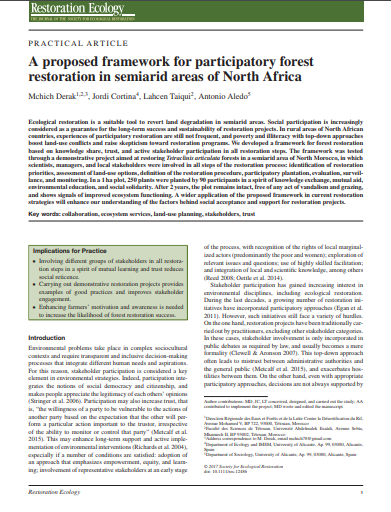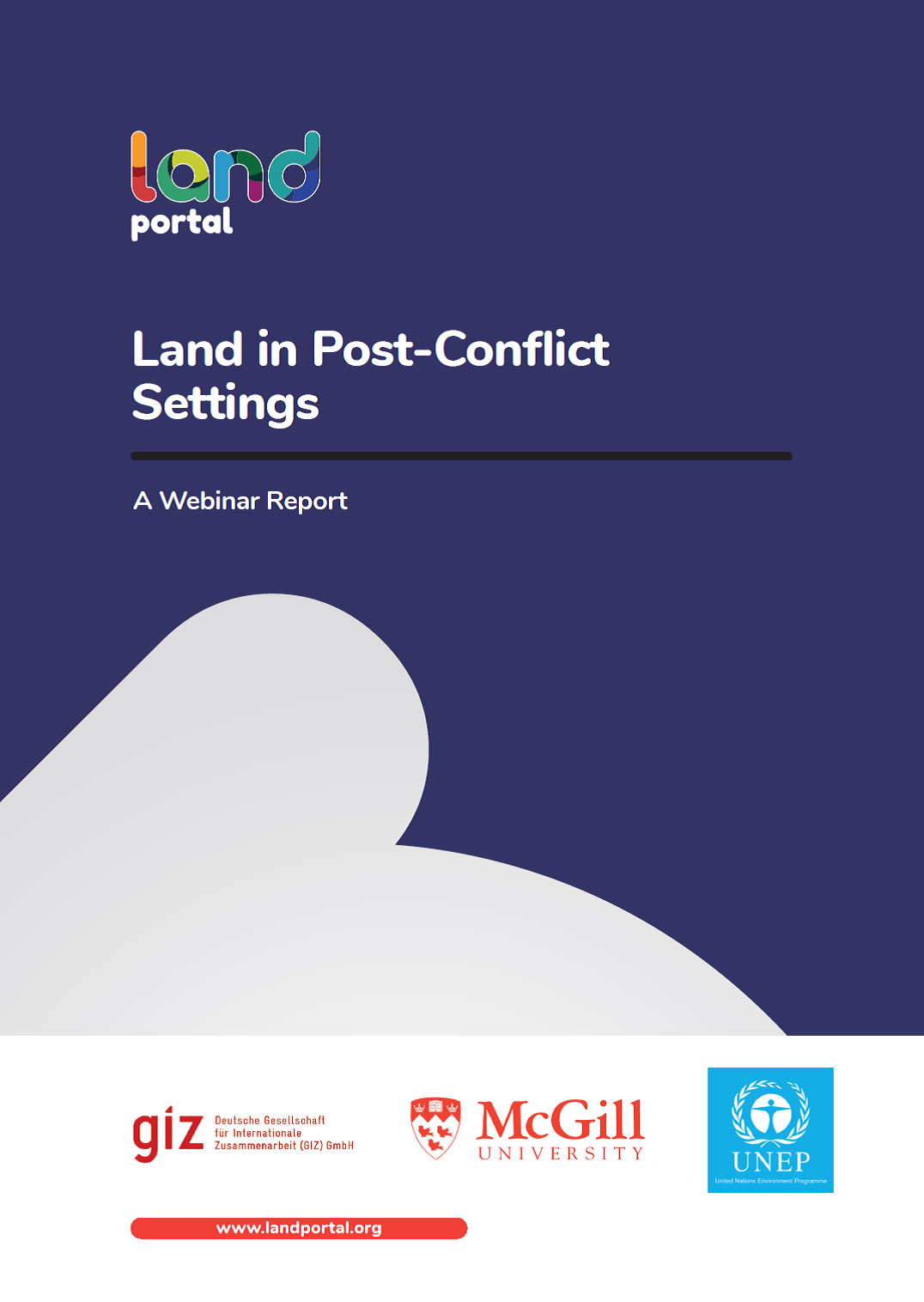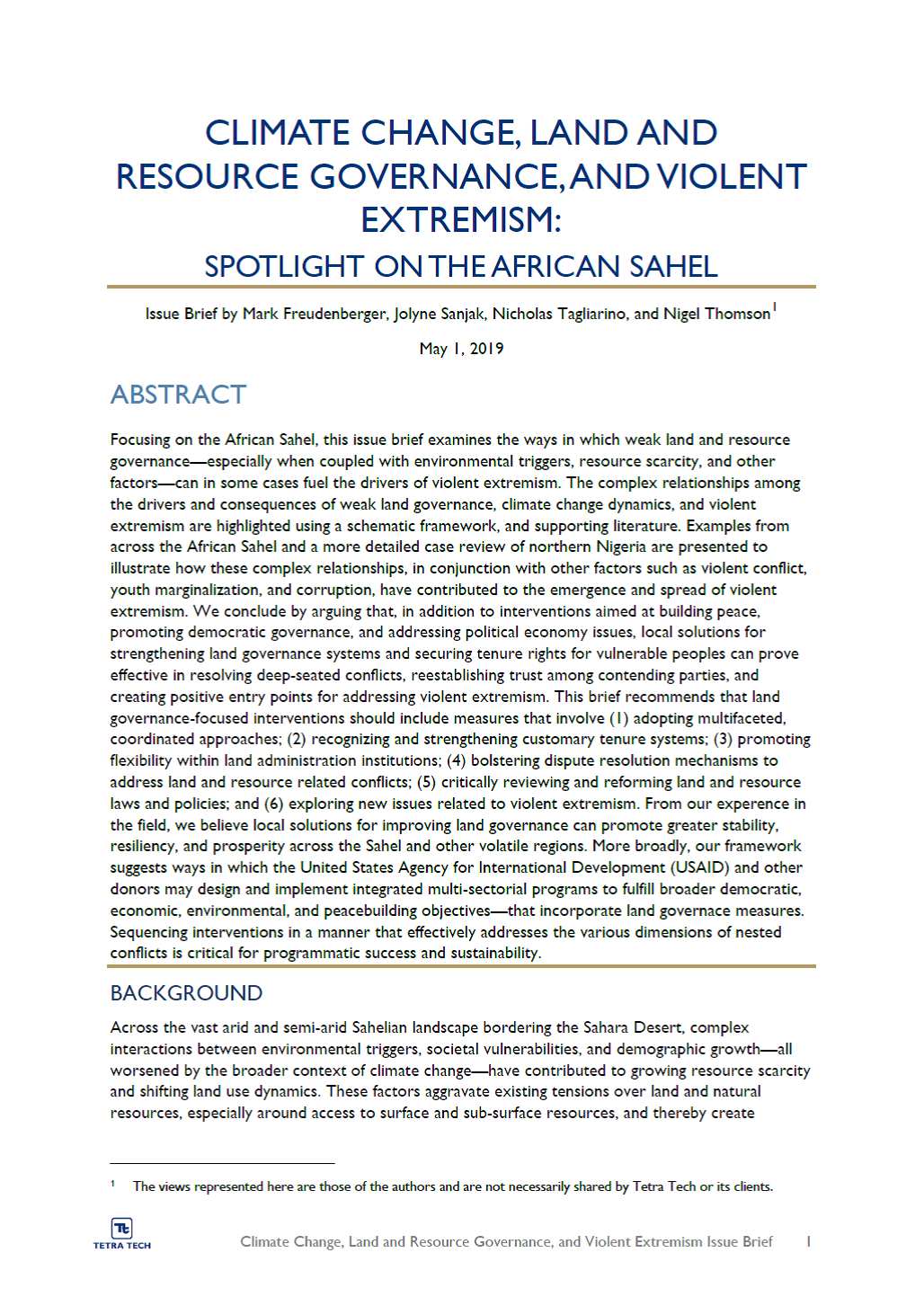A proposed framework for participatory forest restoration in semiarid areas of North Africa: Participatory forest restoration
Ecological restoration is a suitable tool to revert land degradation in semiarid areas. Social participation is increasingly considered as a guarantee for the long-term success and sustainability of restoration projects. In rural areas of North African countries, experiences of participatory restoration are still not frequent, and poverty and illiteracy with top-down approaches boost land-use conflicts and raise skepticism toward restoration programs.





